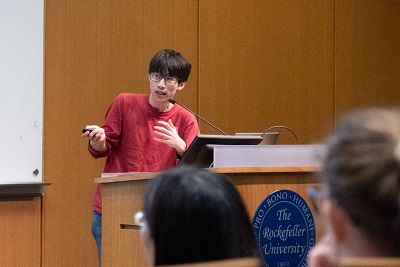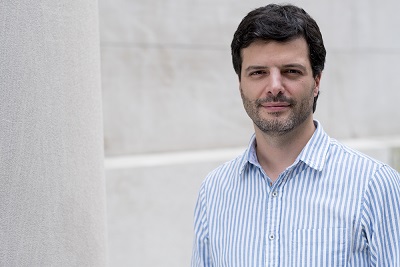Rockefeller University awarded $27 million NIH grant to fund clinical and translational science
Rockefeller University’s Center for Clinical and Translational Science, established a decade ago to accelerate the pace of translating scientific discoveries into interventions shown to improve health, has received $27 million from the National Institutes of Health to fund ongoing and expanded work over the next five years. The Clinical and Translational Science Award (CTSA), which has funded the center since its inception, is designed to improve the translational research process and foster innovation in research methods, training, and career development.
The award maintains CTSA funding that began in 2006, when Rockefeller was selected as one of the first 12 institutions to receive it, and then continued through the university’s successful renewal in 2011. With the new grant, which is separate from that awarded in 2006, Rockefeller has received more than $115 million in CTSA funding.
“I’m delighted that we will continue to be funded through the CTSA,” says Center for Clinical and Translational Science Director Barry S. Coller, David Rockefeller Professor, head of the Allen and Frances Adler Laboratory of Blood and Vascular Biology, and principal investigator of the CTSA. “This award will provide us with vital resources to strengthen our existing programs and add new ones, further enhancing Rockefeller’s already outstanding clinical and translational research.” In addition to Dr. Coller, who is also vice president for medical affairs and physician-in-chief of The Rockefeller University Hospital, James G. Krueger, who is D. Martin Carter Professor in Clinical Investigation and head of the Laboratory of Investigative Dermatology, serves as co-director of the CCTS and co-principal investigator of the CTSA.
The CTSA program, which is run by the National Center for Advancing Translational Sciences of the NIH, supports a national network of medical institutions that collaborate to improve the translational research process so that new treatments can reach patients faster. At Rockefeller, the CTSA helps fund several of the university’s clinical investigation programs, including the Participant Recruitment Program, the Community Engagement Program, and the Clinical Scholars Master’s Degree Program. The CTSA also provides Rockefeller investigators and trainees with advisory support in bioinformatics, medical informatics, and biostatistics.
Rockefeller’s Center for Clinical and Translational Science was established to provide an optimal infrastructure to conduct clinical and translational research and to educate the next generation of physician-scientists committed to patient-oriented research. In addition to the NIH’s CTSA, the center is supported from funds from the university.


